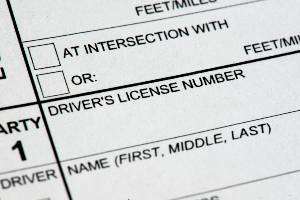 Drivers who cause car crashes often do not want to call the police to report what happened. They may try to convince the victim the crash is not that big of a deal and the victim’s injuries probably are not that serious.
Drivers who cause car crashes often do not want to call the police to report what happened. They may try to convince the victim the crash is not that big of a deal and the victim’s injuries probably are not that serious.
Unfortunately, some drivers may be swayed by these statements and not call the police, even though their first instinct may be to call 9-1-1 so the police and other first responders will be sent to the scene.
Not only is it important to call the police for the sake of your claim for compensation, but calling the police is also often required by law. Below, we discuss when state law says those involved in a crash must call the police and how a police report benefits your claim for compensation.
If you were injured in a crash, our Lafayette-based vehicle accident lawyers are ready to help you seek compensation. We can review your situation in a free consultation and discuss how we may be able to help you. Our services come with no upfront cost.
Louisiana Law on Calling the Police After a Crash
Under Louisiana Revised Statutes 32:398, you are required to call the police immediately if you were involved in a car accident that caused:
- Injury
- Death
- $500 or more in property damage
When the police arrive, you are required to give them the following information:
- Name
- Address
- Registration of the vehicle you were driving
- Driver’s license
You are also required to exchange this information with the other driver or drivers involved in the collision.
Many car crashes can cause injuries and anyone who has been in a crash before knows how expensive it can be to repair even minor damage.
It is generally best to err on the side of caution and call the police after an accident. That way the police can complete a report on the crash, which is often a vital piece of evidence in a claim for compensation.
Sometimes the police do not send an officer to the scene. If this happens, but you were required to call the police, you are required to provide a written report to the Louisiana Department of Public Safety & Corrections within 24 hours if the crash caused:
- Injury
- Death
- A minimum of $100 in property damage
You could be fined $100, be sentenced to 60 days in jail or both for failing to file a written report within 24 hours of the crash.
How Police Reports May Affect Car Crash Claims
The police report is an important piece of evidence. It serves as an official record of what happened. In the report, the responding officer explains the facts of the crash and may state who he or she thinks is at fault for the crash and why. The report will also list any traffic citations that were issued to the drivers involved.
Additional evidence may contradict things in the police report. For example, if the other driver’s statements to the police do not line up with other evidence about the crash, it may help validate your claim.
When your statements to the police line up with additional evidence, and your statements to police are consistent with other statements you make later in the legal process, the police report can strengthen your case.
Your lawyer may still need more evidence to help prove your case. Your lawyer not only needs to prove negligence occurred, but he or she also needs to link it to your injuries.
It is also important to note that the insurance companies with whom you file a claim may try to deny coverage if there is no police report about the crash.
Even though Louisiana is a fault state and the at-fault driver’s insurance company is liable for your damages, you may need to file a claim against your own insurance if the other driver is uninsured or your damages exceed his or her policy limits.
What if the Police Report has an Error?
Sometimes police reports have errors that may hurt your claim. Fortunately, our lawyers may be able to help you correct errors or inaccuracies. Sometimes all it takes is contacting the officer and explaining the error. The officer may be able to revise it, or he or she can explain how to get the error corrected.
It is important to let your attorney know about an error as soon as possible so he or she can get it corrected quickly. If you wait to correct the error, the insurance company may say you are just trying to validate your claim even though the error is not an error.
Contact Us to Discuss Legal Options After a Crash
For more than 25 years, our attorneys have been helping those injured by another’s negligence. We have taken on a wide variety of cases and helped many injured victims secure justice and compensation.
We work on contingency, which means there are no upfront fees or legal obligations. We do not get paid unless our clients get paid, which means no fees while working on your case.
Learn more by calling 337-984-8020 today.